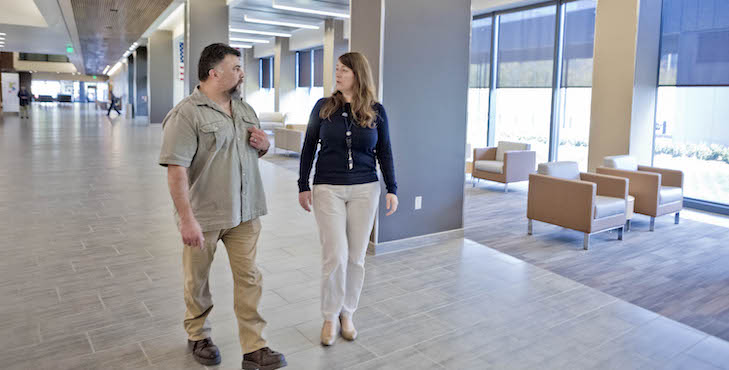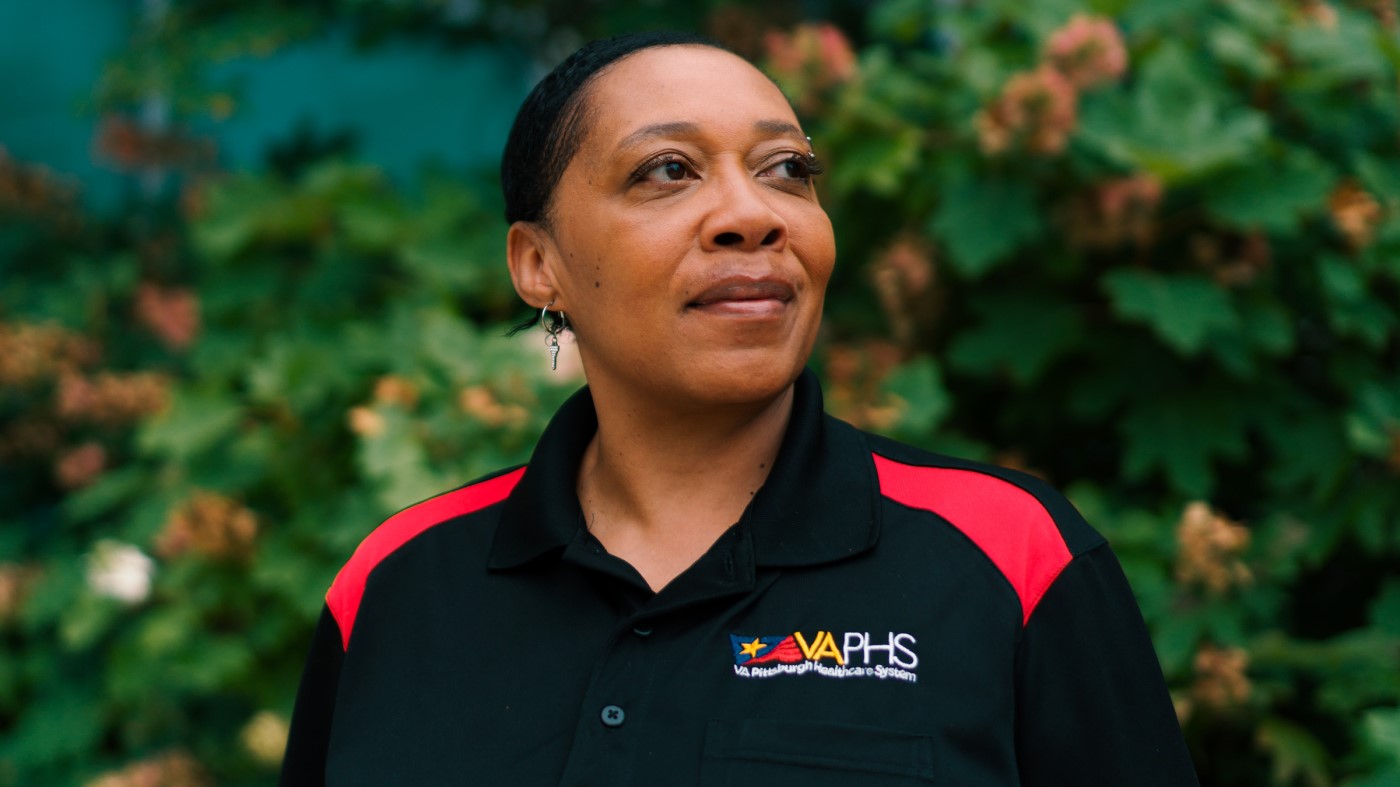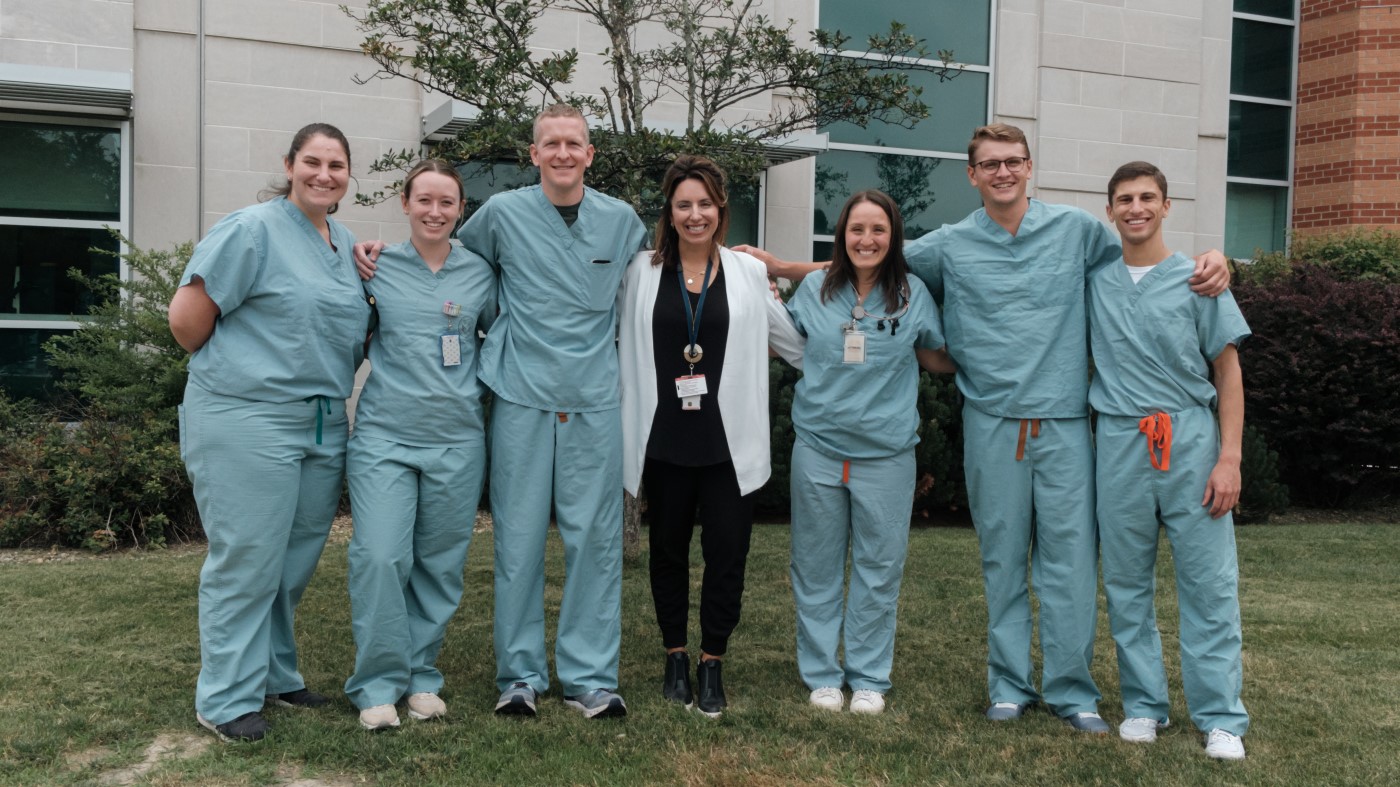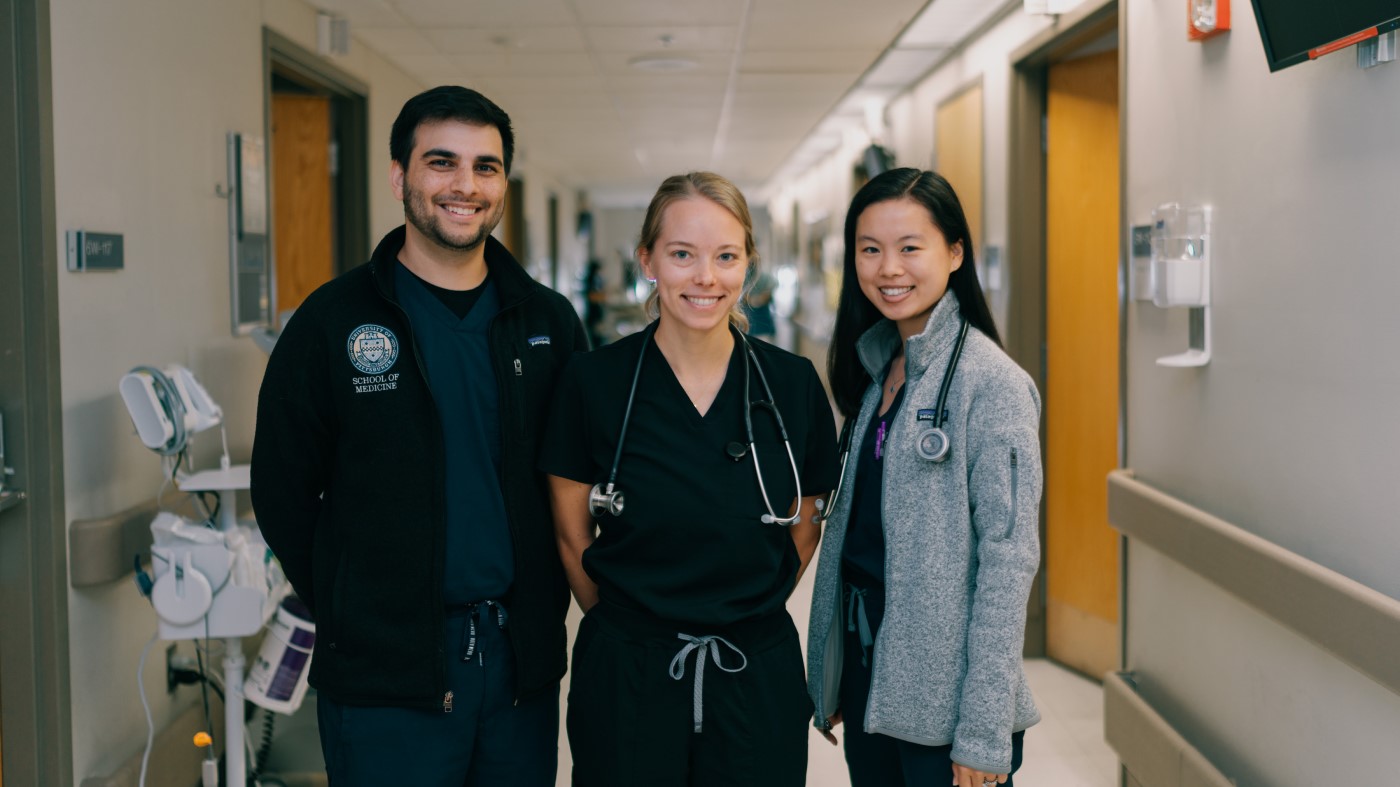Recruiters for the U.S. Department of Veterans Affairs (VA) are headed to the City by the Bay during Mental Health Month to meet with psychiatrists who are attending the American Psychiatric Association annual meeting and are interested in careers helping Veterans thrive after the military.
A VA career in Veterans’ mental health is more than just a job — it’s a deeply rewarding mission to give back to those who have served and assist in the recovery from diagnoses such as depression and posttraumatic stress disorder.
Underscoring these and other opportunities presented by VA psychiatry careers are recruiters Eric Snipes, Sam Wainscott and Charles Long, who will staff Booth 1709 in San Francisco’s Moscone Center from May 18-22, 2019.
“VA continues to be the nation’s vanguard in reshaping the conversation around mental health treatment and recovery,” VA Secretary Robert Wilkie said recently in kicking off Mental Health Month, which this year coincides with the launch of “The Moment When” digital campaign.
The American Psychiatric Association conference attracts roughly 15,000 attendees and features 650-plus educational sessions, including many related to Veterans’ care issues; 38 courses; eight tracks; and 40 AMA continuing medical education credits.
“VA psychiatrists are often leaders and innovators in the field of mental health,” said Darren Sherrard, Associate Director of Recruitment Marketing at VA. “Conference attendees can meet with recruiters to explore what it’s like to work in mental health at VA, share their contact information and learn how they might contribute to the mission.”
Discover the benefits of working with VA
At the VA Careers booth, representatives Snipes, Wainscott and Long will explore with conference attendees the wide range of benefits available to VA psychiatrists, including premium-support group health insurance (with dental, vision and long-term care), generous leave policies and liability coverage worth thousands of dollars a year.
They’ll explain that VA providers can work anywhere in the United States, Puerto Rico, American Samoa and Guam with one active license. In addition, they can review how benefits transition with employees if they move to a new facility and which telework options and transportation supports are available.
“VA psychiatrists provide a full range of therapeutic interventions for a diverse Veteran population — including geriatric and post-deployment combat Veterans — that help improve their overall wellness and contribute to their recovery,” Sherrard said. “We encourage attendees interested in a VA career to visit Booth 1709 to share their story and stay informed of employment opportunities.
Choose VA at APA’s Annual Meeting 2019
- SPEAK to a VA recruiter at Booth 1709 at the APA Annual Meeting 2019.
- SEARCH VA careers in mental health.
- REACH a recruiter today at VACareers@va.gov.
Topics in this story
More Stories
If you’re looking for an opportunity to provide care to Veterans outside a traditional clinical setting, Home Based Primary Care (HBPC) is a great option.
A key part of your job search is finding the right fit for you and your skills, and workplace culture can impact that dramatically.
VA offers numerous pathways into mental health careers, including scholarship opportunities for college students. Learn more.







My brother who by the way was station at Fort Bragg two year post Vietnam when he had his break with reality the Army kept him almost six months before discharging him home which is s strange because if this happened in the Air Force they would have been discharged immediately which took a couple weeks home to family and love ones. Now that he is 100 % disabled Veteran and going to theVA in Indianapolis he has never seen a psychiatrist in the passed six years or so since he came to Indiana. The psychiatric care here is lacking it is like these doctors are double dipping because they are working at IU hospital while they are suppose to be at work at the VA. This is happening at many VA hospitals that are connected with teaching hospitals. How I know this information is that I am an RN who use to work at a VA hospital connected with teaching hospitals. Doctors need to clock in and out just like everyone else does and that is a physical clock in.
MARCH TO MEMORIAL DAY
2019
MY VETERAN MENTAL HEALTH EXPERIENCE
by
Ken Sampson
Recent multiple veteran suicides at several different main VA hospitals warrant examination of the PTSD factors and attitudes that march veterans toward suicide. These veteran suicides both inside and outside the main VA hospitals are that dead suicide veteran’s personal statement of intense dissatisfaction and frustration with the main VA hospital staff psychiatrist’s attitudes and capabilities.
Veteran suicide rate reduction is now the number one current mission mandate for the VA. Mandated by President Trump. Efforts to quell and silence conversation and discussion among veterans and VA psychiatrists concerning veteran’s suicide motivation to kill themselves would be perilous dereliction of duty.
I myself personally faced a huge mental health challenge not only from combat derived bipolar but also from combat derived PTSD resulting from my critical combat duty of B-52 bomber bombardier during the Vietnam War. I killed thousands. My many combat tours bombing Vietnam culminated in a medical evacuation and and an abrupt termination of my U.S. Air Force career by a forced medical early retirement resulting in my severe depression and identity loss. For years I was plagued with both suicidal and severe homicidal thoughts. I had nine psychiatric hospitalizations.
I sought psychiatric help at both the Miami Vet Center and the Fort Lauderdale Vet Center. At these Vet Centers I received good appropriate treatment for the past several years. This treatment helped me overcome great mental health adversity and moved me toward resilient recovery.
Veterans Administration Vet Centers are entirely separate from VA main hospitals. The Vet Center counselor’s well grounded and firmly practical attitude and education gave me and my wife hope which motivated and moved me toward a resilient recovery. Vet Center counselors are well trained in American military culture. They foster in the combat veteran a
sense of belonging to civilian society again and and foster in the veteran a willingness to transition and adapt to our civilian community,
Altogether different from Vet Center counselors, main VA hospital staff psychiatrists have a parochial “ivory tower” education and training. Main VA staff psychiatrists seem to be disconnected from the reality of the everyday life of average people because they have spent too much of their time in intellectual pursuits. A person coming from an ivory tower has difficulty judging the actions of people and life in general outside of academia.
My friend Miguel was a longtime PTSD patient at Miami VA main hospital in 2012 and 2013. Miguel announced his impending self-death with this shocking pre-suicide email sent to me on 20 May 2013:
“THE MIAMI VA IS RESPONSIBLE FOR MY DEATH TODAY.”
“I WILL DIE FOR MY FELLOW VETERANS PAST, PRESENT, AND FUTURE. NOT AS A MARTYR, BUT AS A MARINE DOING HIS ULTIMATE SACRIFICE TO BRING ATTENTION TO A CORRUPT SYSTEM … .”
Miguel “ate his gun” and blew his brains out at his home the night of Friday 24 May 2013, significantly three days before Memorial Day. Miguel’s daughter telephoned me the next morning to report the suicide death of her father. Many combat veterans remember past traumatic memories around Memorial Day.
My experience from my friend Miguel’s suicide and my experience from
my exposure to many VA main hospital staff psychiatrists for 45 years at the Miami VA main hospital, has convinced me that these veteran suicides both inside and outside the VA hospitals are that dead suicide veteran’s personal statement of intense dissatisfaction and frustration with the main VA hospital staff psychiatrists’ attitudes and capabilities.
Even though I was a close friend of Miguel and Miguel communicated with me his suicide intent and the detailed reasons for his suicide immediately before the night of his suicide, when I try to present this idea of veteran dissatisfaction and frustration to the main VA staff psychiatrists I meet against a solid wall of non-acceptance and resistance.
Vet Center counselors validate and treat the veteran.
Main VA hospital staff psychiatrists examine and judge the veteran.
An open attitude of understanding and acceptance by the examining main hospital VA staff psychiatrist is crucial to a veteran’s willingness to candidly talk to the main hospital VA staff psychiatrists about life and death. This life and death talk is essential to suicide rate reduction.
Miguel had contact with a Miami VA psychiatrist the afternoon of 24 May 2013 just before he shot himself. An open non-judgmental psychiatrist attitude was not present for Miguel. Arrogance, resistance, and superiority was.
Kenneth Boone Sampson (redacted)
Captain USAF Medically Retired
USAFA ’64